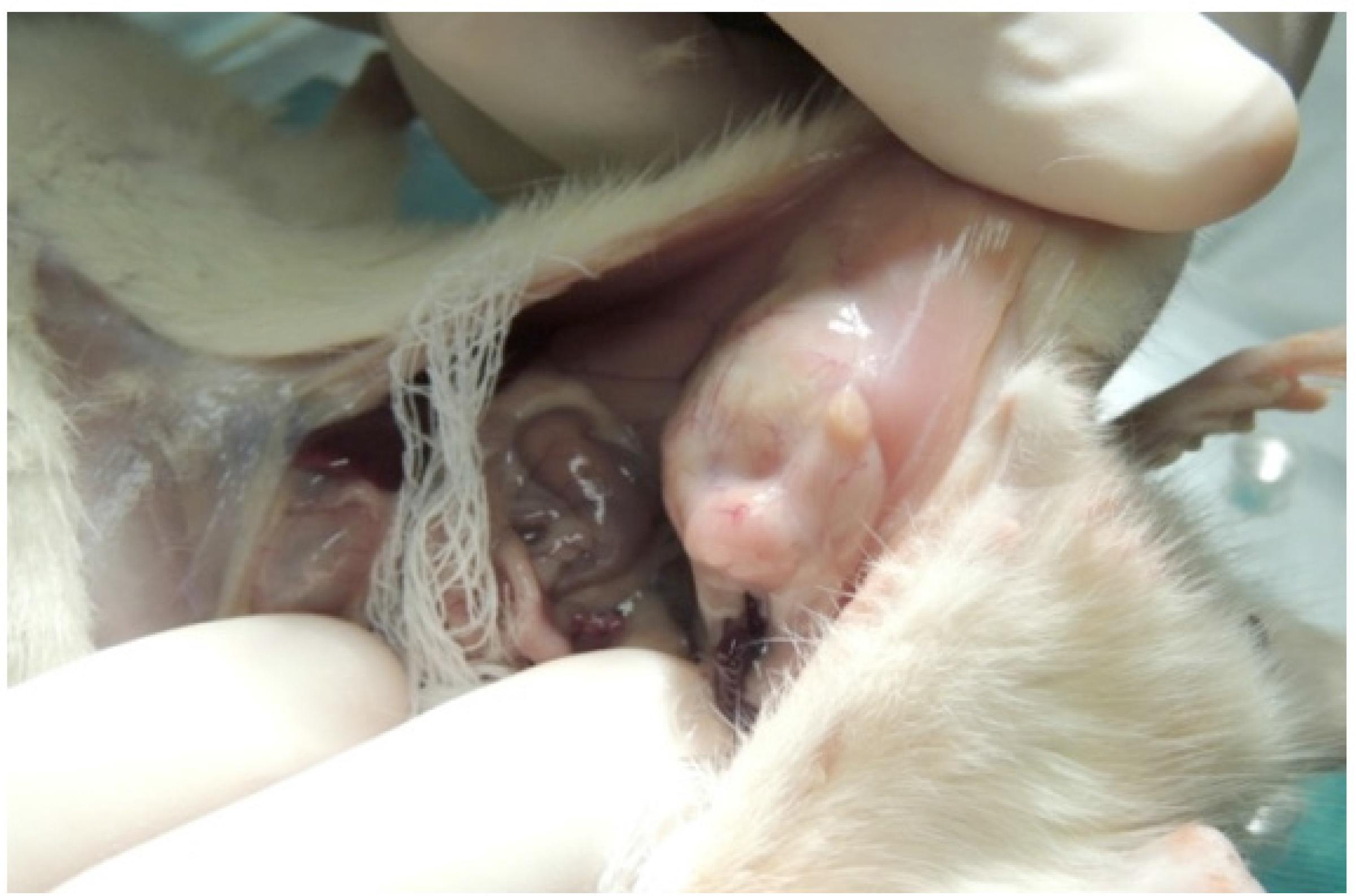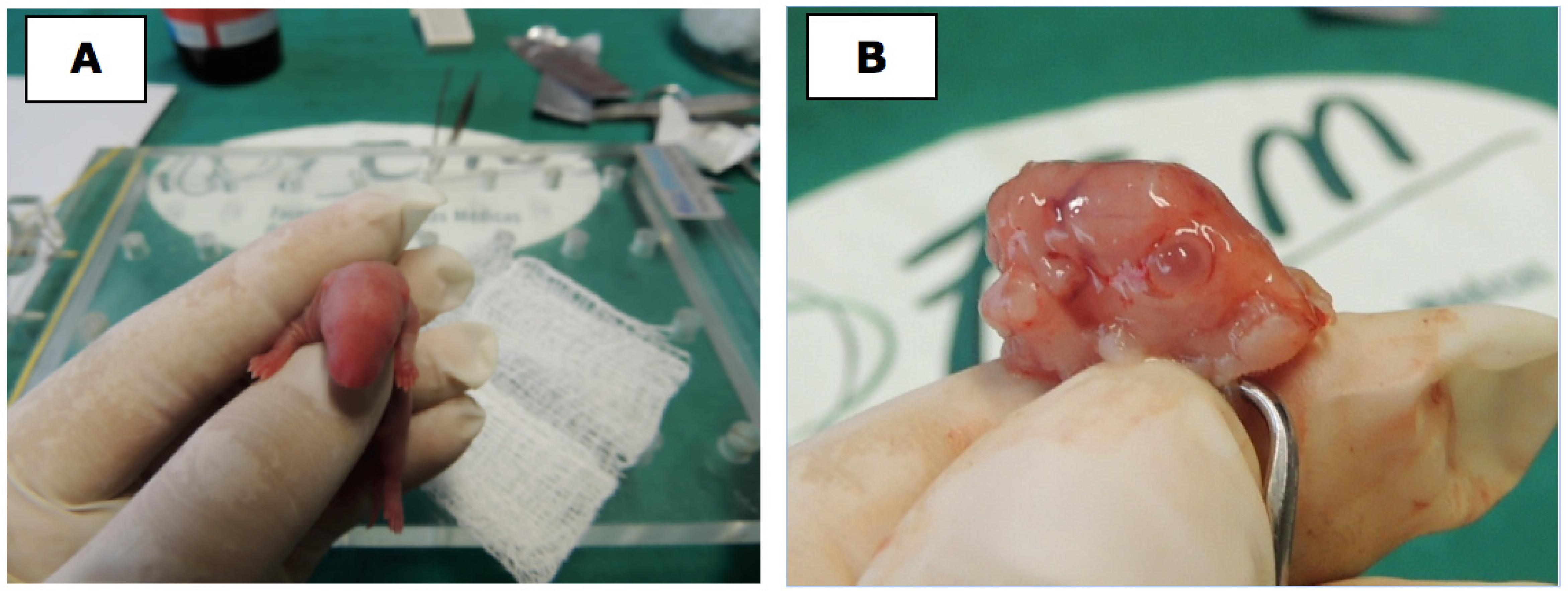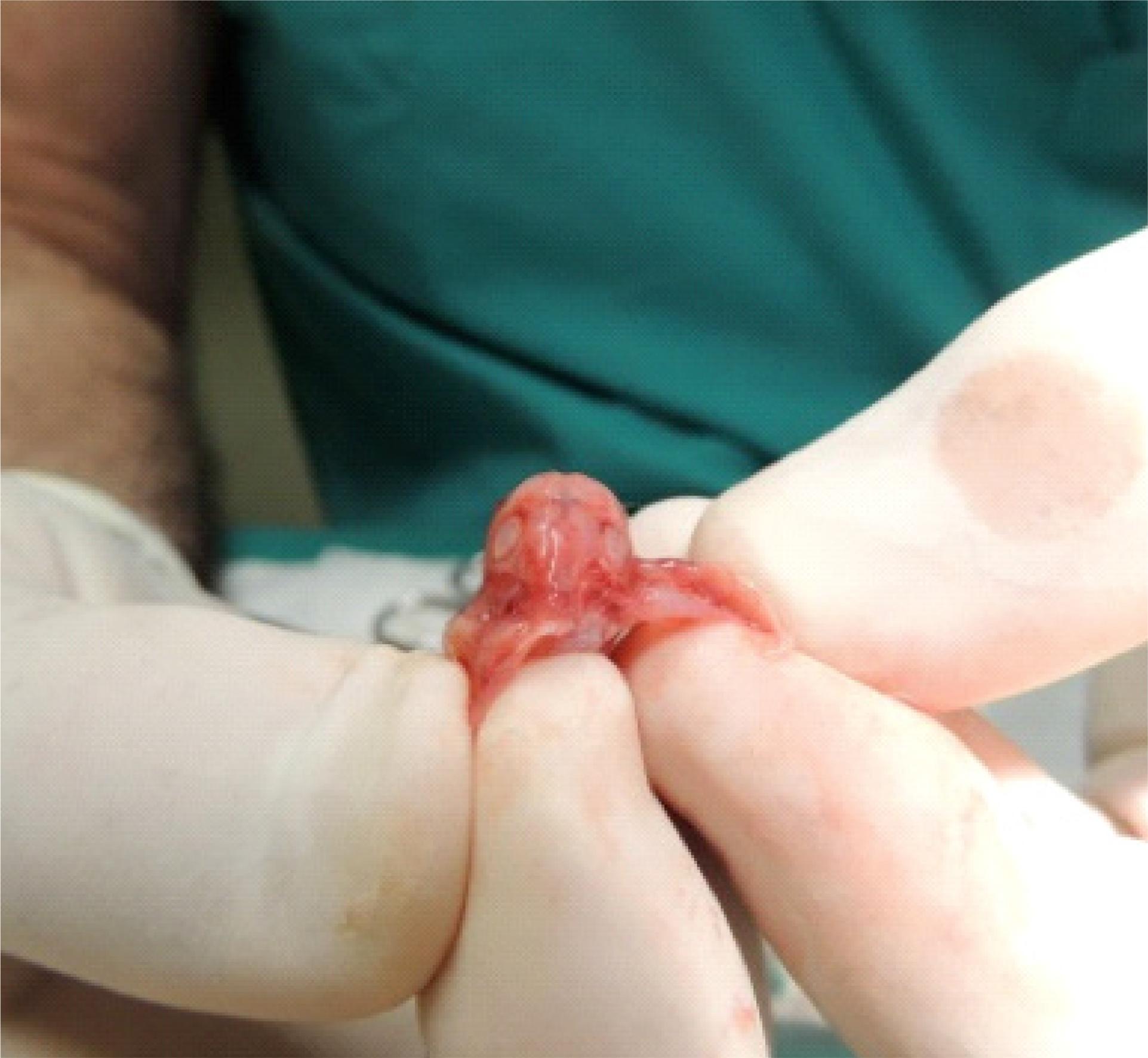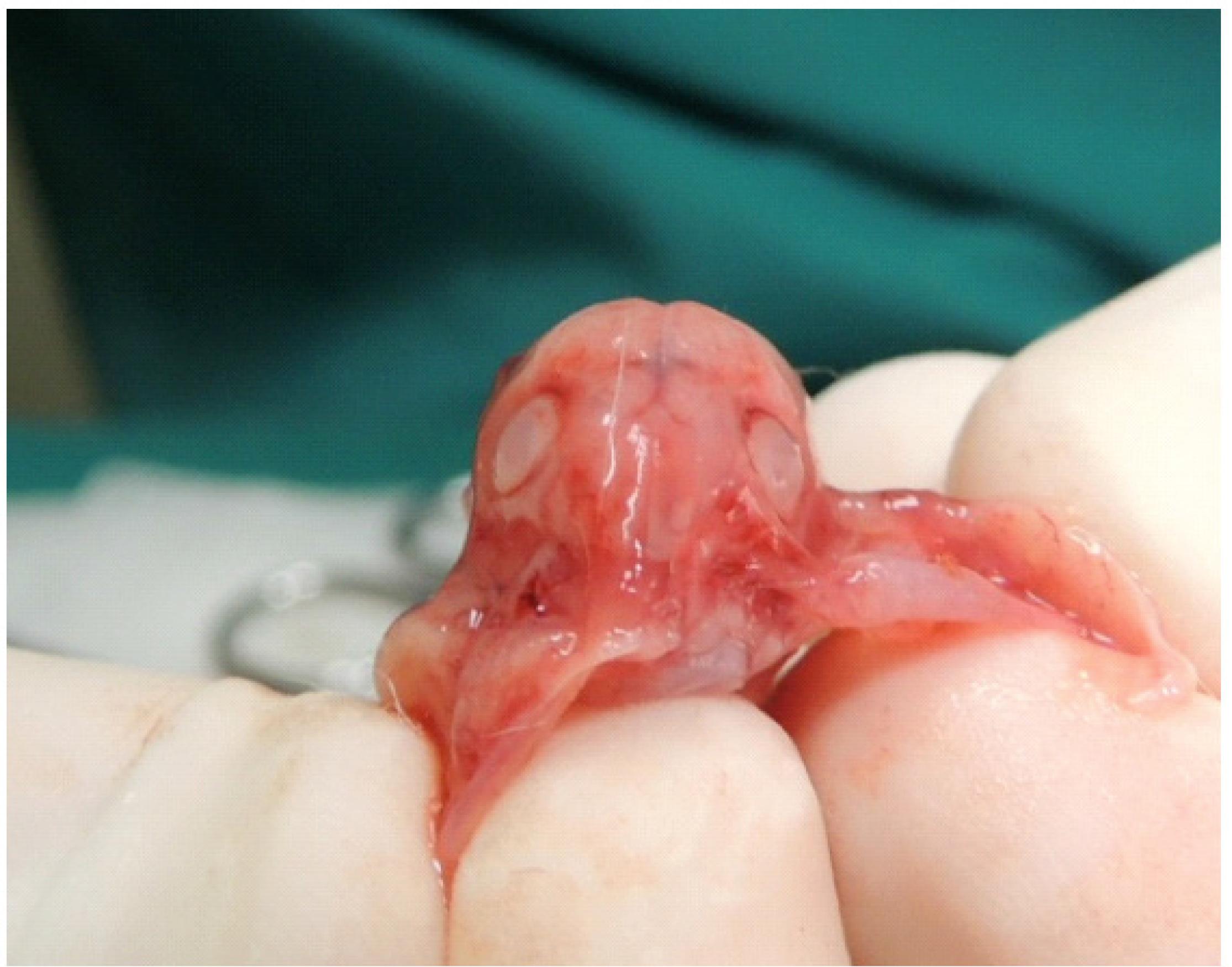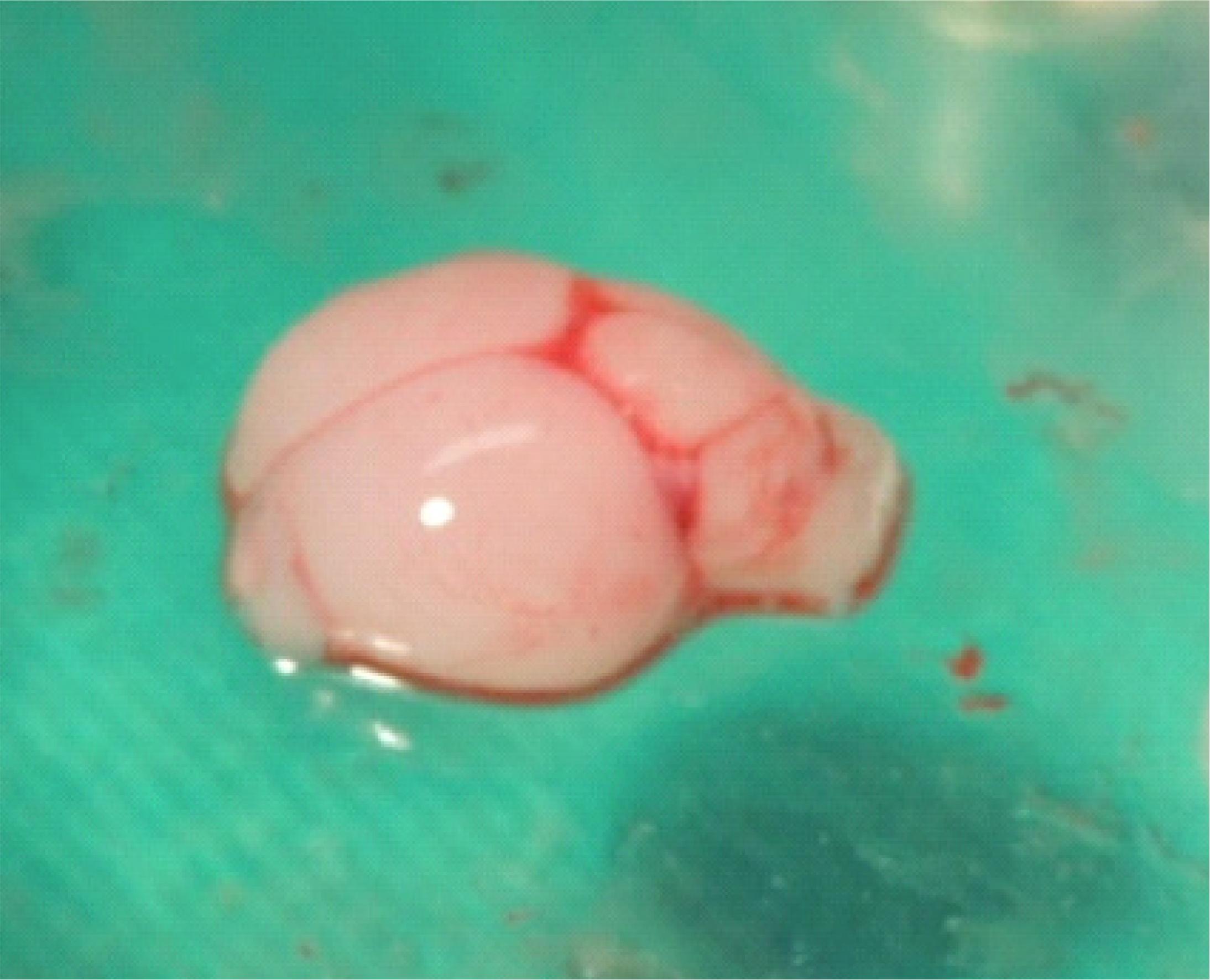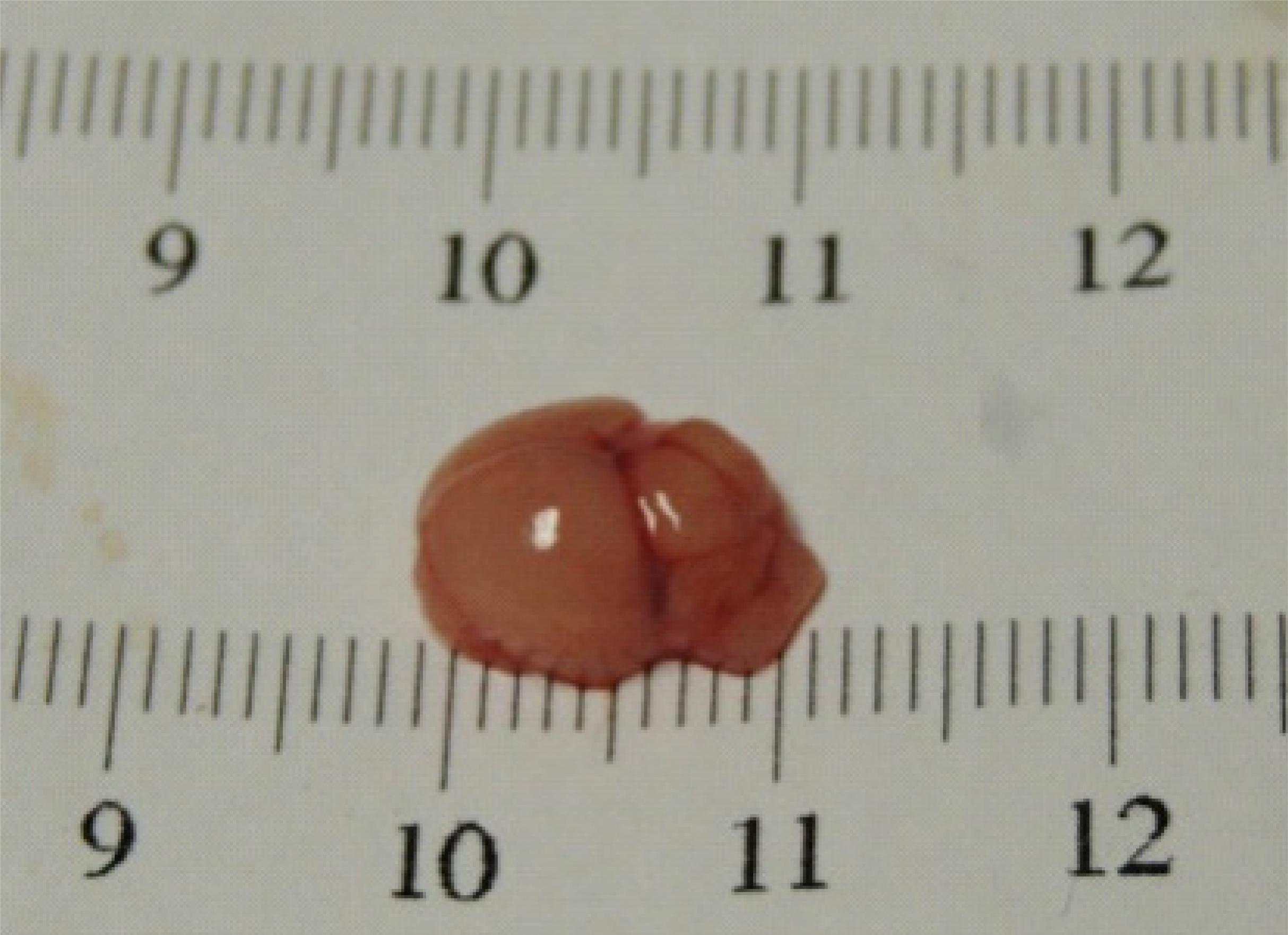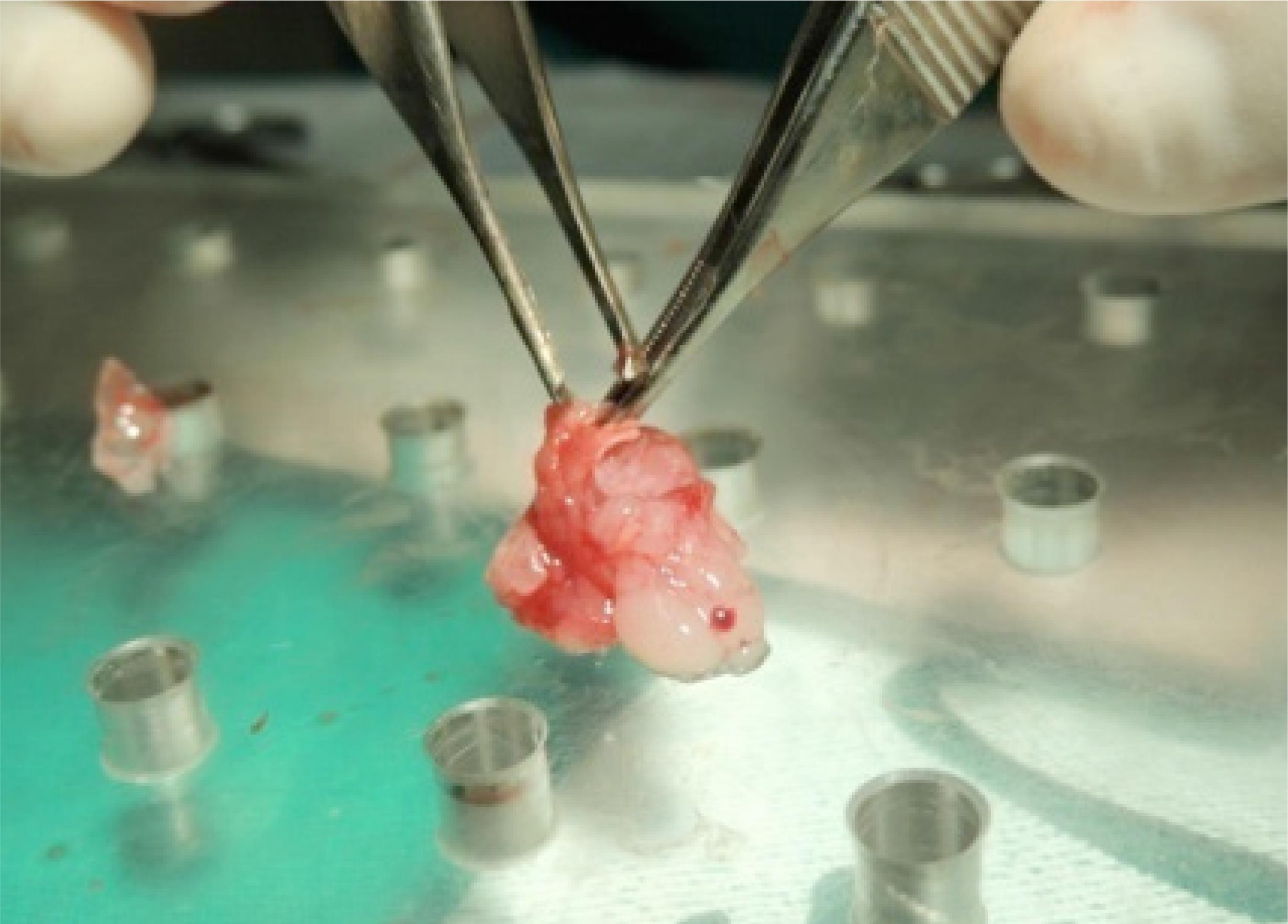PURPOSE:
To investigate the morphological aspects of brain and eyes in newborn rats whose mother underwent autogenously fecal peritonitis.
METHODS:
Four pregnant rats that underwent fecal peritonitis, with a 10% fecal suspension in dose of 4 ml per kilogram received two antimicrobial treatments: 1. intraperitoneal moxifloxacin and dexamethazone; and 2. Intravenous meropenem. After head inspection, the brain consistencies and the eyes belonging to all offspring were analyzed.
RESULTS:
The brains of newborn from rats that received 4 ml/kg of 10% suspension of feces showed, significantly smaller and less than the firm consistency of those in the control group. Congenital cataract was observed in 9 (34.6%). No cataract was observed in the 20 newborn rats from the mothers that received the combination of moxifloxacin and dexamethasone. Cataract could be observed in three (13.6%) offspring from mothers that received meropenem.
CONCLUSIONS:
Peritonitis can produce brain damage and congenital cataract in rats. The translation to humans is that intra abdominal infection in pregnant women may be associated with damage in brain and eye structures of their concepts. This can be averting using the adequate early therapeutically approach.
Peritonitis; Quinolones; Carbapenems; Cataract; Rats

